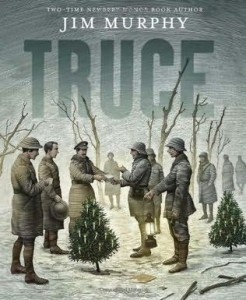“I have been invited to so many conferences on “The Death of the Book” that I suspect it is very much alive,” wrote Harvard Librarian Robert Darnton in an article in the December 23 issue of the New York Review of Books (“The Library: Three Jeremiads,” LVII:20, 22-26). Darnton went on to note that very shortly “there will be a million new books published worldwide every year” and that after Gutenberg invented the printing press it was another three centuries before manuscript publishing died out. The pace was slower then? Maybe. Every news medium this week is agog with the news that Google is joining with independent bookstores to offer Google eBooks in stores, e-books that can be read with every e-reader except you-know-whose. So far, bookstores planning to participate are very excited. What motivates the giant to include the little guys? Can it be a desire to kill the other giant? Time will tell how and where all this will settle out.
For now I’m sticking with books. Printed books. Bound books. Books on paper. The kind that have no expiration date and don’t need batteries. And though the number of books published hasn’t yet hit the million mark, I can tell you the numbers are big enough to make choosing far from simple. While I certainly don’t “have it down to a science” (and don’t aspire to scientific choosing), here are some of the ways I select from among so many books:

(1) Many of the new books I order are to fill customer requests, and this is one category of inventory I order for stock, also. For example, a customer ordered Truce, by Jim Murphy, for two grandsons for Christmas, and it occurred to me that other grandparents might find that an appealing choice. It’s one of the few well-known stories from World War I, and while this version is aimed at younger readers the text is blunt and the photographs hide little. It really is war. Another grandmother wanted Barack Obama’s new book for children, A Letter to My Daughters. I could go on with titles I’ve ordered this way, but you get the point. One woman who came in looking for Eckhart Tolle’s Guardians of Being touched off a series of orders for that book, which I’ve sold out of once again. It had “meaningful gift” built right in.
(2) There are the new titles I know will be in demand as soon as I see them. Anything to do with Julia Child falls into this category, so As Always, Julia: The Letters of Julia Child required so second thought. People will want it!
(3) Some books I order because I have loved them and/or found them important or they appeal to and interest me–for any of a variety of reasons. Bruce (that’s bookstore Bruce) and I both are great fans of Bruce Catton’s Waiting for the Morning Train, which I like to have in stock at all times. When I found out that Phil Caputo’s Indian Country, set in the U.P., is back in print, I had to order it. A review of The Crying Tree, by Naseem Rakha, inspired me to order that novel, and I certainly don’t regret it. I’d love to get the whole country reading it! Anything by Wendell Berry falls into this third group.
(4) Finally, there are the must-have Michigan titles, both fiction and nonfiction, everything from natural history to poetry. (The Caputo book in the preceding paragraph is set in Michigan and was also ordered by a customer, so it falls into three of these four categories.) It’s usually in late spring and early summer, getting ready for summer people and tourists, that I order a lot of Michigan books.
By the second week in December the year’s ordering is almost done. I have a few titles coming for Christmas, but anyone who hasn’t ordered by now is cutting it pretty close. On the other hand, I’m already thinking about my first spring order and what will be on it, with Ellen Airgood’s South of Superior at the top of the list!
Pamela Grath
Dog Ears Books
106 Waukazoo Street
P.O. Box 272
Northport, MI 49670
(231) 386-7209

Dear Pamela — Thank you so much for mentioning my book TRUCE and for your kind words. I will say one thing about the directness of the text when it portrays warfare. I wanted the full impact of the actual Christmas Truce to register with readers and felt that to accomplish this I had to let readers see how senseless the war actually was and how brutal. It was a brief moment in a long and terrible war, but the truce was a powerful symbol of how “peace on earth, good will to men” can overcome fear, predujice and hatred. Happy Christmas. Jim Murphy
Jim, thank you so much for writing. I completely understand and appreciate your view of World War I. WWI is so long ago that the general tendency is probably to think of it as #1 in a two-part series, which of course it was in many ways, but in other ways it was very, very different, more confused, a more 19th-century kind of war. Your book is powerful and insightful. Thank you for your contribution to the historical record. Young people need to know these things.
Pamela Grath